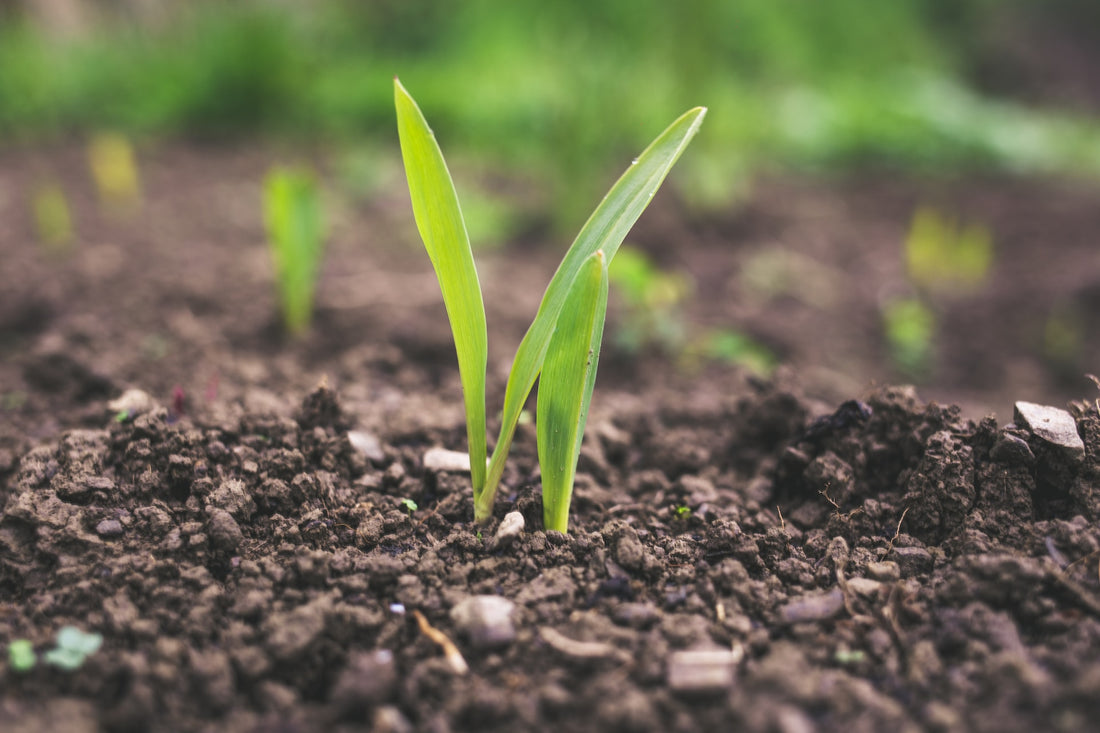Healthy soil is the foundation of a thriving garden. However, many gardeners tend to overlook the importance of soil health in their quest for beautiful and productive plants. The truth is, the key to improving your garden soil is to understand the soil food web. The soil food web is an intricate network of living organisms that work together to create a healthy soil ecosystem and literally determine how our gardens perform.
What Is The Soil Food Web?
As the name suggests, the soil food web is a complex and interconnected ecosystem that exists underground. It involves countless microorganisms such as bacteria, fungi, protozoa, and nematodes, as well as larger organisms like insects, earthworms, and small mammals. These organisms all work together to create a healthy soil environment that supports plant growth and health.
In simpler terms, the soil food web is like an underground city where every inhabitant has a unique role to play. Just like how we humans rely on a complex network of farmers, grocers, and other food producers to get the food we need to survive, plants rely on the soil food web to provide them with the nutrients they need to grow strong and healthy.
The soil food web is based on the principle of mutualism, which means that all organisms work together to support one another. In this web, each organism performs a unique function that benefits other organisms in the ecosystem. For example, the bacteria and fungi help break down organic matter in the soil, releasing nutrients like nitrogen, phosphorus, and potassium that plants need. The protozoa and nematodes consume bacteria and fungi, and then release the nutrients they have ingested back into the soil. Earthworms help to aerate the soil and improve drainage, while larger organisms like moles and mice help to mix up the soil and create tunnels for air and water to flow through.
Overall, the soil food web is a fascinating and complex ecosystem that plays a vital role in maintaining healthy soil and supporting plant growth. By understanding how it works, gardeners can learn how to harness its power and create thriving, sustainable gardens without relying on harmful chemical fertilizers and pesticides.
Principles of Soil Health
- Diversity: Biodiversity is important not just for the planet as a whole, but for the health of your soil. A variety of microorganisms and beneficial insects help to create a balanced ecosystem.
- Minimize Disturbance: The more you till and disturb the soil, the more you disrupt the natural soil food web. Limiting disturbances like tilling can help to create a healthier soil environment.
- Keep it Covered: Bare soil can be a breeding ground for weeds and soil erosion. Keeping soil covered with organic matter like mulch, cover crops or other vegetation helps to improve soil structure and conserve water.
- Keep it Living: Encouraging living organisms in your soil, including worms, bacteria and fungi, is a crucial part of building healthy soil.
- Incorporate Organic Matter: Adding organic matter like compost and other soil amendments can help to improve soil structure and boost the availability of nutrients to plants.
By keeping these principles in mind, gardeners can improve soil health naturally and sustainably. Not only will this help to produce healthy plants and bountiful harvests, but it also supports a thriving ecosystem both above and below the ground.
Here are some ways you can improve and support garden soil naturally with the soil food web in mind:
- Add organic matter: Adding organic matter to your soil is a great way to support the soil food web. This can be in the form of compost, manure, leaves, or any other organic material that is rich in nutrients. The microbes in the soil will break down the organic matter, releasing nutrients for your plants and creating a healthy environment for the soil food web.
- Avoid chemical fertilizers: Chemical fertilizers can harm the soil food web by killing off beneficial microbes and organisms. Instead of relying on these fertilizers, consider using natural alternatives like compost tea or fish emulsion to provide your plants with the nutrients they need.
- Plant cover crops: Cover crops like clover or vetch can improve soil health by adding nitrogen to the soil and preventing erosion. These plants also provide a habitat for beneficial insects and microbes that contribute to the soil food web.
- Rotate crops: Crop rotation is an effective way to prevent soil-borne diseases and pests from building up in your garden. By rotating your crops, you also provide a varied diet for the soil food web, which can lead to a healthier and more diverse ecosystem in your soil.
- Minimize soil disturbance: Tilling and digging can disrupt the soil food web and damage the delicate network of organisms that make up the system. Instead, consider using no-till or low-till methods in your garden to preserve the integrity of the soil food web.



